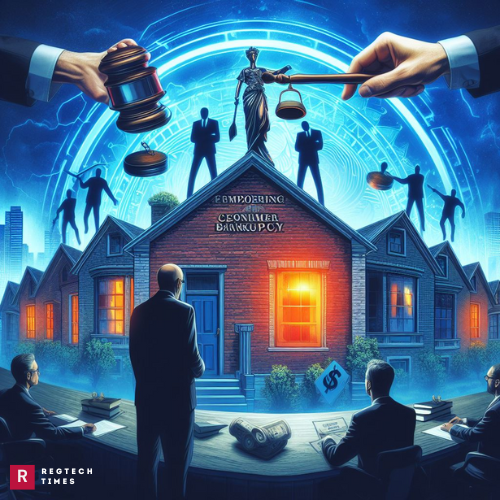The foundation of the legal profession is trust: clients look to lawyers to guide them through intricate legal procedures honestly and ethically. But as recent US cases demonstrate, some lawyers have misused this trust for their benefit, especially in the area of consumer bankruptcy. The behavior of lawyers Stanley Kakol and David Speckman highlights how crucial it is to maintain ethical standards in the legal industry, especially when dealing with delicate cases like bankruptcy.
Speckman and Kakol’s dishonest business activities with consumers were exposed in February, when the Bankruptcy Courts for the Southern District of California and the Northern District of Georgia issued corresponding judgments and orders. Ultimately, these lawyers betrayed the faith that vulnerable cusumers in financial difficulties had placed in them by participating in schemes designed to obtain their clients’ homes through dishonest means.
The Role of the U.S Trustee Program
The U.S. Trustee Program (USTP), a division of the Department of Justice, is essential to preserving the honesty and effectiveness of the bankruptcy system. The USTP is charged with advancing the integrity and effectiveness of the bankruptcy system for the benefit of all stakeholders, including debtors, creditors, and the general public. It has 21 regions that together comprise 89 field offices across the country, as well as an Executive Office located in Washington, D.C. Cases of lawyer misconduct, like the ones involving Speckman and Kakol, are discovered and handled thanks to the USTP’s vigorous efforts.
The Case of David Speckman
When the San Diego office of the U.S. Trustee filed an adversarial complaint against attorney David Speckman, it became apparent that he had engaged in misconduct. Important information about property transfers and transactions involving his clients and Speckman’s wife’s company, Prado Investments LLC, was withheld by Speckman. These acts included creating contracts that would allow clients to sell their houses to Prado without a judge’s approval and submitting fictitious and misleading court filings. Speckman’s conduct went against California’s ethical guidelines guiding attorneys’ conduct in addition to breaking bankruptcy laws and procedures.
The Misdeeds of Stanley Kalol
In a similar vein, lawyer Stanley Kakol got into trouble when the Atlanta office of the U.S. Trustee filed for penalties against him. When Kakol submitted flimsy chapter 13 petitions on behalf of an elderly widower at the request of CMNC Homes LLC, which covered Kakol’s expenses, it became clear that he was involved in real estate frauds. The purpose of these petitions was to postpone the debtor’s house foreclosure so that CMNC could buy it for a much lower price. Kakol’s misbehavior was exacerbated by his past disciplinary actions, which included failing to reveal compensation, confirm debtor signatures, and offer sufficient representation.
Consequences and Accountability
The bankruptcy courts punished them for their outrageous actions, hoping to prevent similar misbehavior in the future and safeguard consumers. Speckman was fined $3,500 and was prohibited from ever again representing consumers in bankruptcy disputes in the Southern District of California. Kakol was permanently banned from representing debtors where he would be compensated by a party other than the debtor, and he was prohibited from filing new bankruptcy cases in the Northern District of Georgia for a year. These fines highlight the repercussions of betraying professional ethics and trust, and they act as a cautionary tale to other lawyers considering schemes along these lines.
The enforcement proceedings brought against lawyers Stanley Kakol and David Speckman serve as a stark reminder of the value of morality and honesty in the legal field, especially when dealing with delicate cases like consumer bankruptcy. Their participation in real estate scams damaged the confidence of vulnerable consumers who were experiencing financial difficulties, in addition to breaking the law and ethical norms. The legal community needs to reaffirm its commitment to maintaining the highest levels of professionalism and accountability as it considers these matters and works to protect the rights and interests of people who depend on legal assistance when they are in need.


